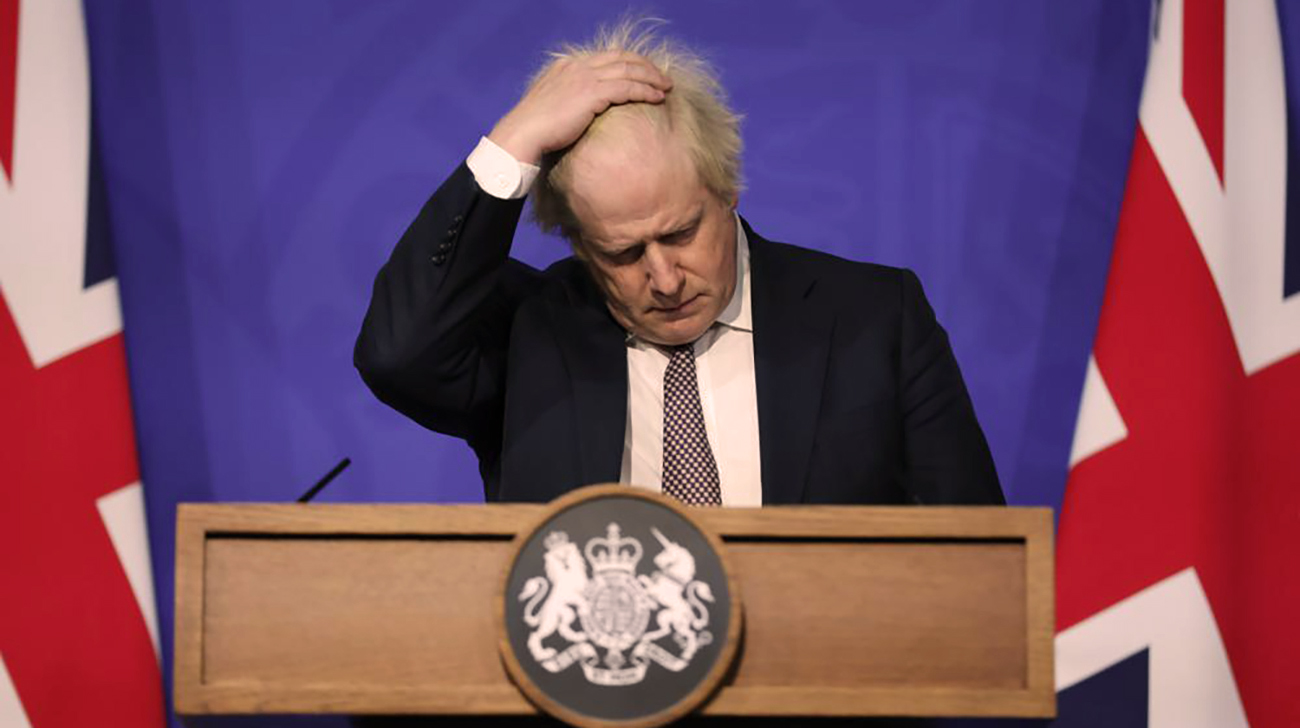For Brexit, Johnson’s departure from office is the beginning of the end

Brexit helped propel Boris Johnson to Britain's highest office. His three turbulent years as prime minister revealed the costs of that decision. His departure will not spare Britain the lasting economic and diplomatic damage caused by leaving the European Union. But the idea of Brexit as a force for reordering British society expired with Johnson's resignation speech on Thursday.
Some of the prime minister's former disciples have sensed the change in the political climate. Stepping down as chancellor on Tuesday, Rishi Sunak wrote that "our people need to know that if something is too good to be true then it's not true". That's a striking statement from a politician who spent much of the past six years extolling the opportunities for Britain from divorcing its largest trading partner, while downplaying the costs of doing so.
Indeed, the Brexit movement was based on telling people things that, even at the time, were too good to be true. The 2016 referendum campaign spouted simplistic slogans about cash for the National Health Service while dismissing concerns as "project fear". After the vote, advocates pushed for the hardest possible separation while attacking those they suspected of thwarting their agenda: not just rival politicians but civil servants, diplomats, judges, corporate executives, financiers, academics, and journalists. And as the costs of the Brexit divorce became harder to ignore, its supporters blamed other factors like the Covid-19 pandemic and Russia's invasion of Ukraine.
To be clear, Brexit is not the reason Johnson has been forced to step down just two-and-a-half years after a resounding election victory. The blame lies squarely with the former London mayor and his chaotic approach to government. He presided over office parties that broke the Covid-19 lockdown rules his government had designed, and promoted an ally he knew had faced allegations of sexual misconduct. The scandals devalued what was once his greatest political asset: his popularity with voters.
Nevertheless, Brexit added to the sense of malaise. Trade frictions have left Britain with higher inflation and slower economic growth than many other developed countries; the UK's Office for Budget Responsibility expects them to lower UK exports and imports by 15% in the long run. The government is legislating to nullify parts of its trade deal with the EU just 18 months after Johnson signed it. Meanwhile, ministers reached for increasingly far-fetched Brexit "opportunities", from bringing back imperial measurements to turning London into a global hub for crypto assets.
Those hoping to replace Johnson will now compete to distance themselves from that legacy. Sunak's resignation letter offers pointers about the values he and his rivals will embrace: seriousness, competence, honesty. Though some true believers may campaign to continue Johnson's vision, it's hard to see many of the would-be prime ministers boasting that they helped "get Brexit done".
Instead, the next leader will have to grapple with the difficult questions that Johnson did his best to avoid: how to resolve the standoff over Northern Ireland, whether to diverge further from EU regulations, whether to cut taxes or boost spending. In the process, the electoral coalition Johnson assembled in 2019 may fracture.
This is not to suggest that a future British government will seek to reverse Brexit. Even the opposition Labour party has ruled out rejoining the EU. Britain will still have to live with the economic consequences of its departure, which by the end of 2021 had lowered economic output by 5% and investment by 14%, according to John Springford of the Centre for European Reform. A more plausible scenario is that Brexit will become an unpleasant fact of life that has to be managed, like air pollution or the illegal drugs trade.
As a political idea, however, Brexit is now depleted. Johnson's intervention in the referendum was crucial in swinging public support behind leaving the EU. His chaotic tenure as prime minister discredited that movement as a coherent force for changing Britain. For Brexit, the prime minister's departure from office is the beginning of the end.



 For all latest news, follow The Daily Star's Google News channel.
For all latest news, follow The Daily Star's Google News channel. 

Comments